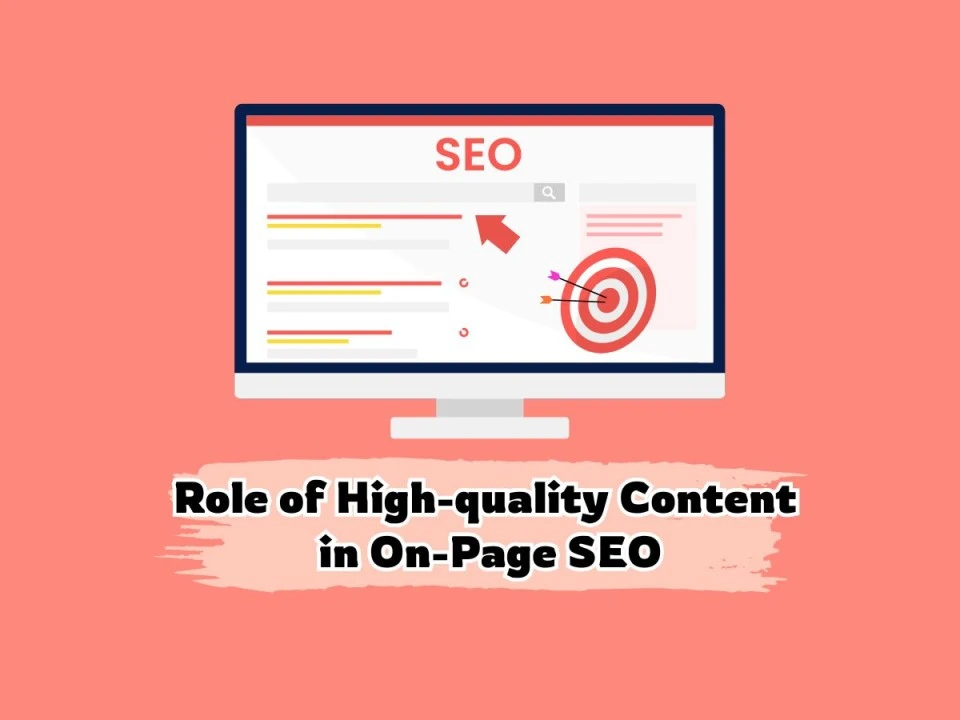The Role of Content Quality in On-Page SEO
In the world of digital marketing and search engine optimization (SEO), content quality is often touted as a critical factor for success. High-quality content not only engages and informs your audience but also plays a significant role in improving your website’s search engine rankings. This blog will explore the role of content quality in on-page SEO and provide practical tips to enhance your content strategy.
Understanding Content Quality
Content quality refers to the overall value and relevance of the information provided on your website. High-quality content is well-researched, well-written, and tailored to meet the needs and interests of your target audience. It should provide clear, accurate, and useful information that addresses the reader’s queries and helps them achieve their goals.
Why Content Quality Matters for SEO
-
Search Engine Algorithms: Search engines like Google prioritize high-quality content in their ranking algorithms. Content that provides value to users is more likely to rank higher in search results.
-
User Engagement: Quality content keeps users engaged, reducing bounce rates and increasing the time they spend on your site. Engaged users are more likely to convert, share your content, and return for more.
-
Backlinks and Social Shares: High-quality content is more likely to be shared and linked to by other websites, which can boost your site’s authority and search engine rankings.
-
Trust and Credibility: Consistently providing valuable content builds trust and credibility with your audience, encouraging repeat visits and fostering loyalty.
Key Elements of High-Quality Content
-
Relevance: Your content should be highly relevant to the keywords and topics you are targeting. It should address the specific needs and interests of your audience.
-
Depth and Detail: Comprehensive content that thoroughly covers a topic is more valuable than shallow content. Aim to provide in-depth information and insights.
-
Originality: Avoid duplicate content and strive to offer unique perspectives or new information. Original content stands out and adds value.
-
Accuracy: Ensure your content is accurate and up-to-date. Fact-check information and cite reliable sources.
-
Readability: Content should be easy to read and understand. Use clear language, short paragraphs, and subheadings to improve readability.
-
Engagement: Engage your audience with compelling writing, interesting visuals, and interactive elements like polls or quizzes.
Tips for Creating High-Quality Content
-
Conduct Thorough Research: Start with thorough research to understand your audience’s needs and the competitive landscape. Use keyword research tools to identify relevant topics and search queries.
-
Plan Your Content: Create a content plan or editorial calendar to organize your content creation efforts. Outline your key points and structure your content logically.
-
Write for Your Audience: Tailor your content to your target audience’s preferences and level of understanding. Use a conversational tone and address their pain points directly.
-
Use Visuals: Incorporate visuals like images, infographics, and videos to make your content more engaging and easier to digest.
-
Optimize for SEO: While quality should be your primary focus, don’t forget to optimize your content for SEO. Include relevant keywords naturally, use meta tags, and ensure your content is mobile-friendly.
-
Edit and Proofread: Carefully edit and proofread your content to eliminate errors and improve clarity. Consider using tools like Grammarly or Hemingway for assistance.
-
Update Regularly: Regularly update your content to keep it fresh and relevant. This can help maintain its SEO value and continue to attract traffic over time.
Measuring Content Quality
To ensure your content quality efforts are paying off, it’s important to measure and analyze your performance. Use tools like Google Analytics and Search Console to track metrics such as:
-
Organic Traffic: Monitor the number of visitors coming to your site from organic search.
-
Bounce Rate: Track the percentage of visitors who leave your site after viewing only one page.

-
Time on Page: Measure how long visitors spend on your pages.
-
Social Shares: Track how often your content is shared on social media platforms.
-
Backlinks: Monitor the number and quality of backlinks pointing to your content.
Regularly review these metrics to identify areas for improvement and adjust your content strategy accordingly.
Content quality is a cornerstone of effective on-page SEO. By prioritizing relevance, depth, originality, accuracy, readability, and engagement in your content, you can enhance your website’s search engine rankings and provide a better experience for your audience. Remember, high-quality content not only attracts and retains visitors but also builds trust, credibility, and long-term success for your online presence. Invest in creating valuable content, and you’ll reap the rewards in improved SEO performance and a more engaged audience.






